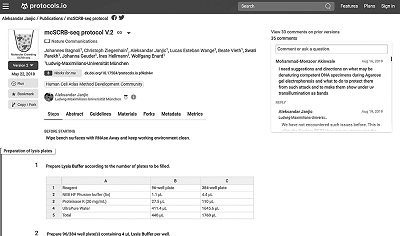The Open Library Services Platform
One important platform is the central technology investment of a library—the library services platform (LSP). The LSP is the platform that supports the unified management of the entire collection over which the library has stewardship—print resources, journal content, and the overall research output in its numerous expressions and formats. By affording the library a unified view of the materials in its collections, the library can support the optimal use and discoverability of any type of work or object, whether for the purposes of research, teaching, or learning.
However, in its desire to support the research community at large, the library also has faced constraints posed by the very nature of the LSP and the traditional library-vendor relationship. Indeed, the LSP was developed as an integrated system with interdependent modules supported by a single vendor. The result of this singular approach has resulted in both limitations in terms of the possible workflows and in opportunities to extend the LSP beyond its core functions without the immediate support of the vendor.
The limits of the LSP are, in fact, the limits of proprietary software, which by no means is unique to software in libraries. Proprietary software is, by its nature, “closed.” And the extent to which the software is open or extensible depends on the vendor policies such as the availability of APIs, which are developed and made available by the same vendor. In part, these limitations and resulting customer frustrations have led many technology vendors to support or incorporate open source into their solutions. Good examples of the companies that now support open source projects include Red Hat, Oracle, and Microsoft.
 |
A research method on protocols.io allows researchers to find and view the method or previous versions of the published method.
(Click for full-size image) |
To address concerns around workflow limitations and single vendor dependency, libraries and vendors have come together to support the open source FOLIO project (folio.org). The goal of FOLIO, which stands for the Future of Libraries is Open, is to develop and sustain an open source library ser vices platform. The open source nature of the platform and its modern architecture affords libraries the opportunity to work independently or with any vendor to develop the platform, continuously enhancing its functionality and delivering new and improved research services to users.
Connecting the Dots
The continuum of open research workflows centers on the infrastructure that libraries and vendors provide to their users. While open research tools run the gamut, these must connect with one another to support an end-to-end flow of information and tasks from discovery to creation, reuse, preservation, and management and dissemination. Connectivity depends on the openness of the tools, the platforms that provide access to content, and the solutions that enable libraries to gain stewardship and manage their collections. Only through a truly “open” and connected infrastructure can we keep meeting our researchers’ needs and deliver these indispensable services in support of a sustainable future.
Author note: This article describes products and services that are brought to market by EBSCO Information Services and its partners, including Code Ocean, protocols.io, and Perpetua.